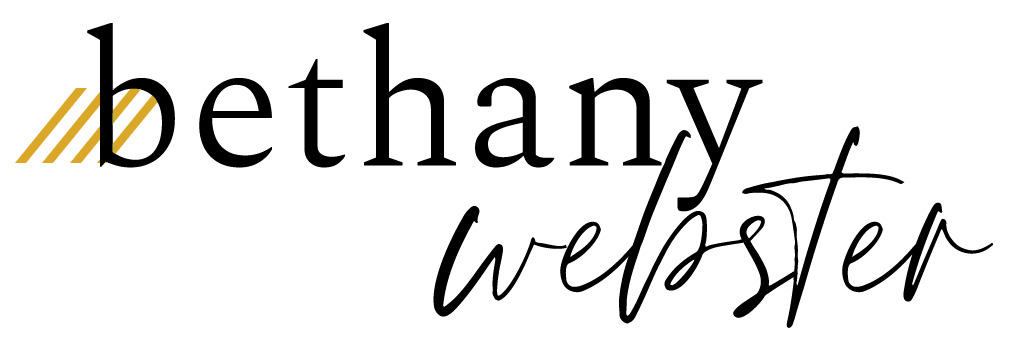Discernment vs Judging: The Mother Wound and Female Friendships

It’s still considered taboo for a woman to be discerning, selective, and strict about who gets access to her. This is a taboo that must be broken if we are to realize the vision of true self-love, self-respect, and self-actualization that we deserve and long for. Healing the Mother Wound makes that vision a reality and transforms the kinds of friendships we accept into our lives. Explore the impact of the Mother Wound on female friendships and how to practice discernment vs judging in healthy adult relationships.
The Impact of The Mother Wound on Female Friendships
For many women, the Mother Wound can make us more likely to remain in draining, mediocre friendships and to feel guilty if we want to raise our standards. Our culture has long had an “unspoken contract” towards women, that we are responsible for the “feeling function” of relationships; that emotional connection and interpersonal harmony is our responsibility and domain. There’s a stereotype that happy, secure female friendships should be fulfilling for a lifetime and that if the friendship doesn’t work out, somehow we have failed. We may spend years wondering what happened to friends that drifted away or feel a “false nostalgia” for friends who we let go of for good reasons.
Our female friendships often trigger the same fears and longings that we had with our own mothers. How much is expected of me? Am I being too much? The balance of self and others can feel like a minefield in moments. Competition, comparison, avoidance, distancing, manipulation, betrayal and clinging may come into play.
Female friendships can be quite complex. Depending on the level of wounding we had with our own mothers and how much inner work we have done around it we will experience difficulty, hurt, and disappointment with other women. Due to the Mother Wound, most little girls never learn the intricacies of discernment vs judging—and the power of discernment.
The Normalization of Low Standards
Dysfunctional families teach a scarcity of love and normalize low standards for relationships. Our brain chemistry is shaped by the early environment. As little girls, we had no choice but to adapt to the dramas, struggles, and conflicts of our mothers which dominated the atmosphere of the family home to some degree. We may have been constantly interrupted, drained, and distracted by some level of the emotional upheaval of the adults in our household. Pediatrician and psychiatrist Donald Winnicott is known for discovering how in a healthy home, “good enough” mothers protect the child from their emotional conflicts and struggles, allowing the child to “go-on-being,” staying absorbed in her own energy, focus and flow, with little interference from adult issues. In this way, healthy mothers respect the innate sovereignty of the child which allows her to form a solid sense of a separate self. If we didn’t grow up in such a healthy environment with our basic sovereignty honored by our mothers, our challenge is to create this “going-on-being” in our adult lives. Part of that is changing how we approach friendships as adults.
Due to the role-reversed, enmeshed dynamic with my own mother, I learned to erroneously conflate discernment with judging in female friendships.
Boundaries and Sovereignty Are Threatening to Others
From a young age, my mother seemed to equate my expressions of my emotional sovereignty or boundaries as a personal attack on her. Through shaming me or withdrawing from me in those moments, I learned to be deferential to her and tried to never threaten her insecurities. My fear of being judgmental was greater than developing my discernment for what I wanted and needed. I dutifully played the role of counselor and soother. My mother had superficial relationships with other women and would gossip to me about them behind their backs while her façade to the world was very kind. As I grew up, this disturbed me and while I said nothing, she became more hostile to me. I tried to keep silent or be met with the message “Don’t you dare speak up for yourself!” Basically, I needed my mother, I was afraid of her and felt trapped by her but couldn’t express any of that. The solution for me as a child was to endure, hide my suffering with a smile, and hope that she would change.
You Fear Being Judgmental
As a little girl, I did not learn the intricacies of discernment vs judging. The Mother Wound caused me to tolerate a LOT out of a fear of being judgmental:
- Growing up, I took the limited capacity of my friends personally. I falsely believed it was a shortcoming of mine when people chose to stay closed, be toxic, ghost me, or refuse to grow and evolve.
- I accepted the burden of friends not being conscious about their issues and had an unconscious agenda of rehabilitating them to meet me at my level. This was like an unconscious reflex due to parentification with my mother; how my safety as a child was in trying to counsel her, soothe her, and efforts to “make her see” when she really had no capacity to do so.
- I believed that being loving and non-judgmental to friends meant sticking it out, allowing ill-treatment, enduring the burden of dysfunction as my responsibility, being the “bigger person,” and accepting “crumbs” of connection to be a friendship.
- I would quickly say a high-pitched “Sure!” to invitations to hang out with people before I actually checked in with myself to see if I truly wanted to spend time with them. I over-extended myself for unfulfilling or mismatched friendships which bred resentment. (It took practice to form a new habit of instead “I’ll think about it” and then follow up later with an authentic yes or no.)
- Like with my mother, I falsely projected more healthy emotional capacity in the other person than there actually was. This was related to the scarcity of actual love in my family, which shaped my blueprint of what to accept in friendships.
You Settle for Less (Until You Don’t Anymore)
I needed to believe as a child that there was more love than there actually was. To take in the reality of how immature, checked out, and unsafe my mother was would have been too devastating to face as a child. To survive my childhood I needed to conflate exploitation with love; to falsely imagine that love meant burden, being used, and having to endure. I believed I should settle for the good I have. I was afraid if I raise my standards I’d be alone. Doing emotional labor for others gave me false hope and protected me from the original despair of my childhood.
It took many years to process and reach a peaceful place of acceptance; my mother was a child in an adult body doing the best she truly could with no tools and little self-insight. She literally couldn’t do it differently. There was no love withheld; it simply wasn’t there to be given in the first place. Sticking with the long process of grieving her lack of capacity gave me more clarity about discernment vs judging and what is realistic and healthy in adult female friendships—and allowed me to raise my standards of friendships.
How to Heal in Adulthood
Parentified daughters, who had some degree of a role reversal with their mothers, develop an inflated sense of power—an adult-like belief that “I can make it work” even as little girls. This is a painful adaptation to fill the void of love or support from the mother.As adult women, this can translate into an inflated sense of responsibility for female friends, avoidance of conflict, people-pleasing, over-functioning, and a tendency to project more capacity onto female friends as well; loving them for their potential instead of for who they actually are.
Healing comes in adulthood from grieving that no matter how hard we tried, how perfect we tried to be, as little girls we never had the power to heal, change or save our mothers or to make them understand. We never, as children, had the power to change the dysfunction of our families as that potential change rested purely with the adults in the home. The adults were the ones who had the power and responsibility, not the helpless children who were dependent on them.
As adults, we must grieve that illusion of inflated power and control as well as the impossible dream of our mothers changing into who we needed them to be. By doing so, our approach to female friendships will gradually adjust to reflect the level of growth and healing we have experienced.
Discernment vs Judging: “The Black Sheep will Inherit the Earth”
Inner Dismantling work, such as healing the Mother Wound, sets one apart from the mainstream world and can be a lonely and confusing path at times. Don’t be afraid to buck the crowd and focus on the unpopular, private, unglamorous work of attending to your growth and healing. Unlike the false promises of an Imperialist White Supremacist Heteropatriarchy, this inner healing work is what brings true happiness and visceral freedom, for yourself and generations to come. Those of us who have been scapegoated or blacklisted by our families or old friends are, in many ways, often ahead of the curve. The high-quality friendships you crave are possible and will come in time. Keep going!
There comes a time when you can no longer allow yourself to be held hostage to crappy relationships when you know your worth. It takes a lot of work to get here when you grew up in a dysfunctional family. You can’t expect others who do NOT possess a consistent, strong drive to walk this path themselves, to understand you and eventually you stop needing them to understand. You stop conflating your worth with their capacity to understand you.
If you are a woman who has been on the path of healing and transformation for many years, at a certain point on your journey, you can no longer tolerate mediocre friendships. There comes a time when your self-respect demands that you no longer accept friendships that even slightly drain, distract, or bore you.
Having been on the path for years of facing your pain, learning how to communicate with integrity, and transforming patterns of childhood trauma (to name a few ), you reach a level of depth that some people do not have the capacity to match, understand, or appreciate. This is not a reason to judge them or ego-inflate yourself, but more of a sober kind of respect for the dignity of your own journey.
Here’s what to look for on the path to healing:
1. Discernment Brings Grief
There may be grief in letting go of the old illusions that caused you to cling to fair-weather friends or stay in friendships due to the cultural pressures that say you have to include and give to everyone when that was never a true obligation.
At a certain level of emotional maturity, you realize that you can’t expect women who have not done comparable inner work on themselves to meet you on equal footing or equal respect. You see clearly that it’s an “impossible ask” of them and a recipe for heartache and exhaustion for yourself.
You know you’ve reached a powerful healing milestone when fears of scarcity, abandonment, and being alone no longer unconsciously dictate what you tolerate in your friendships.
You see clearly that all places on the human journey are valid and worthy of respect, even for women who choose to remain unconscious and stuck. You no longer condemn or judge other women as a means to comfort yourself when feeling lonely or misunderstood. Allowing people to be where they are on their journey is a profound form of respect. And it’s a byproduct of having sufficiently worked through the necessary healthy outrage and grieving on behalf of the child you were for how your mother’s lack of consciousness placed a burden on you as a child. It’s a byproduct of your inner child feeling an “abundance” of a good mother WITHIN and thus, no longer needing to project that scarcity of mother on other people. This is a momentous milestone in the process of healing the Mother Wound.
2. Discernment Surfaces Turbulence
To women you decline to spend time with, you may be perceived as intimidating, mean, judgmental, unkind, excluding, snobby, rude, uppity, distant, selfish, remote, or cold. Their perception of you may be valid from their perspective of where they stand, of likely NOT yet having committed to years of the focused inner work that it takes to get to a place where you truly love and cherish yourself and deeply value your time and energy.
You may experience turbulence as you transition to more discernment in your friendships.
As you heal and evolve, you will crave more depth, courage, and authenticity in the people you choose to spend time with and you deserve to receive that. The superficial will no longer hold your interest and you may find yourself increasingly turned off by what the crowd is into. This is a good sign. This turbulence is not evidencing that you are judgmental or cruel: it is a rite of passage.
3. Discernment Is About (and For) You
Discernment is not really about other people. It’s about you; it’s about evolving to a place where you genuinely crave more solitude, depth, and quality connections with other people who are on your level. Not from a place of defensiveness or judgment but from an authentic place of self-love and self-respect. There is no shame or guilt in that whatsoever. You have a right to be discerning. It’s actually something to celebrate. It can take decades of healing to get here and many women never do.
4. Discernment Is Sovereignty Embodied
Discernment psychology is key to sovereignty. The word “discernment” implies an interiority, a pause, being at choice, a singularity of self, listening, authority, poise, and connection with one’s truth. (It’s not judging, as in being mean, cruel, or unfeeling.)
YOU get to discern what is right for you and who is right for you to spend time with—not the old default patterns from childhood, not what others think or want, but what YOU actually WANT. This is sovereignty.
You get to respectfully decline ANYTHING that doesn’t feel right to you. Your time and attention are precious resources that belong to you and are activated and put to use by your power of discernment.
You have full permission to activate that power of discernment. Own it! Protect it! Use it!
How to Practice Discernment vs Judging
Here are some realizations and affirmations for practicing discernment vs judging in healthy adult relationships:
- I love myself enough to not tolerate wishy-washy, mediocre friendships with unconscious people who don’t really know themselves.
- I love myself enough to not waste my time expecting others to meet me in ways they don’t have the capacity to.
- Another’s lack of capacity to honor me has nothing to do with my worth.
- “I respect you enough to be honest and clear about not feeling compatible with you as a friend.”
- My inner kids trust me enough to know that I am discerning and protective of their wellbeing. I am the safest person for them. Gone are the days of projecting “good mommy” into unconscious women/ female friends.
- I am sovereign; I am no longer captive to the toxicity of unconscious women the way I was with my mother.
- I have enough of myself now that I don’t need other people to change in order for me to feel safe, loved, or valued.
- I get to be unapologetically strict about who gets the privilege of having access to me.
- I respect all places on the human journey of growth. I don’t need people to be further along than they are.
- Pressuring people to grow and evolve came from my childhood pain and was a form of disrespect because it was about me needing them to be better FOR ME, not for them.
- Other people do not need saving or fixing. Their suffering or stuckness is a valid part of their journey in the ‘School of Life.’ They’ll move beyond it when they are ready.
- It’s a form of respect to let people have their lessons, misperceptions, and struggles without pressuring them to grow.
- Respect is given, but intimacy and trust with me are earned over time.
- I respect your choice to remain unconscious but you don’t get access to me.
- Quality over Quantity: When you have enough of yourself, a small circle of quality friendships feels abundant.
- Spending time with others out of a sense of “should” or obligation is not kind or loving.
- Discernment vs judging: discernment is not the same as judging. Discernment is respectful. I am responsible for my boundaries and for communicating them clearly and respectfully.
- I don’t need a reason why I don’t want to spend time with certain people, nor do I owe anyone an explanation.




